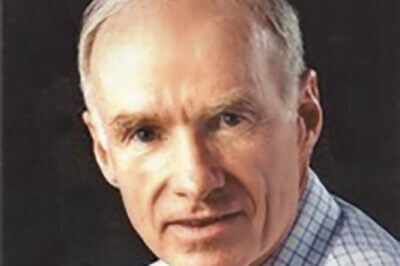One of America’s leading journalists, George Cornell, ripped into some of his fellow editors at a gathering of the Associated Press managing editors. “Why,” he asked, “do most newspapers carry an entire section of sports events daily, but only one page of religious news weekly?”
Is the news that one man bashed in the face of another man in a boxing ring really more important, or even more interesting, than the news of a young man who had an opportunity to cheat on his wife, but chose to remain faithful by relying on the power of the Holy Spirit?
That’s not to say newspapers and magazines don’t report on religious events. Last week when the pastor of a Pentecostal church in Indiana built a bonfire behind the church to burn rock records, and let the fire get away from him until it burned down not only the church but the local barber shop, it was reported on both NBC and CBS.
If a pastor loses his temper and goes after the bank president (who is chairman of his board) with the jawbone of an ass, then that’s considered news. Or, as recently happened, if a prominent minister is found guilty of shoplifting a copy of Playboy magazine from an airport newsstand, then that too makes the pages of the newspaper at some time other than in the Saturday religious page.
Seldom does the press report on the words of a preacher, even if he is speaking prophetically. In other words, what comes from Washington, D.C. or Hollywood is considered more important than what comes from heaven.
There are exceptions, of course. The press loves to quote Billy Graham out of context. Reporters are notorious for editing the remarks of folks like Rex Humbard to make them sound like fools rather than prophets. When James Robison was being attacked by homosexuals for his remarks on TV, it made every major newspaper in the nation. But when Robison publicly apologized for having been hypercritical of his Christian brothers, no one seemed to care.
And if a politician does say something with spiritual meaning, the media including the folks who edit TV tapes, have a way of dropping that part from the published remarks.
For several years I worked for a religious magazine that edited out all references to the supernatural. Their rationale: “We’ll lose credibility if we categorically state that God heals or if we mention things like speaking in tongues or miracles.”
Poppycock! Americans are hungry for someone to tell them the truth about spiritual matters. Airport book racks are filled with books about the occult and demons. And newspapers know they’ll lose subscribers if they don’t run the horoscopes. Why, then, this conspiracy to relegate spiritual news to the religion page?
This is not just a condemnation of the news media. It is also a sad commentary on the fact that in most churches there isn’t enough happening that is worth reporting.
It’s when there is genuine news taking place, and that news is ignored, that I get irritated. For instance, about a month ago a young Christian housewife stopped by to visit a friend who, three times in the week before, had attempted suicide. The friend she was visiting was in deep depression. Her husband was considering having her committed to an institution.
The young Christian housewife stood outside on the front walk and called on the authority of Jesus Christ. She cast out demons of depression and suicide which she felt had invaded the house and, going to her friend’s bedroom, laid her hand on the woman’s shoulder and prayed in tongues.
There was instant deliverance. The woman testified she felt light sweep into her mind, replacing darkness. Now the house is filled with joy. Unfortunately, that did not make the newspapers. Not even the Saturday religion page.
The news on national TV the next morning was filled with dark stories of tornadoes, nuclear threats and murders. No one seemed interested in the power of the Holy Spirit to heal a sick woman.
There is a lot of good news. If Christians would do what God told them to do—publish the glad tidings—we just might turn this wicked world right-side up.
Don’t write me. Write your local newspaper. They just might print your story.
Jamie Buckingham wrote 153 columns for Charisma over 13 years, first known as “Dry Bones” but later as it’s most recognized “Last Word.” His writing brought his singular voice that was animated by a heart for Jesus that was baptized in the power of the Holy Spirit in 1967 at a Full Gospel Businessmen’s convention. Buckingham provided a steadying force during the scandals of the 1980s, penning the seminal article on the PTL scandal, “God Is Shaking His Church” in May 1986.















































